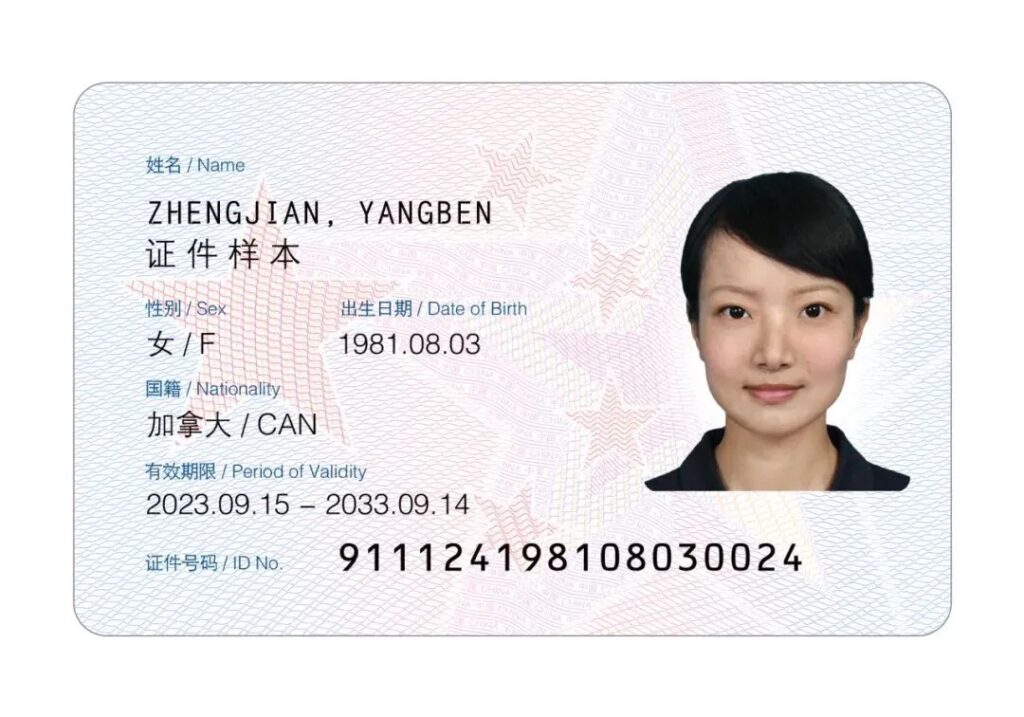
China has long been an attractive destination for professionals, investors, and entrepreneurs looking for opportunities in one of the world’s fastest-growing economies.
However, obtaining permanent residency in China is notoriously challenging due to its stringent immigration policies.
While the country offers various visa categories for work, business, and study, the Chinese Green Card—its permanent residence permit—remains elusive for many applicants.
In this comprehensive guide, we’ll explore China’s current immigration policies, the different pathways to permanent residency, and what you need to know to navigate the process successfully in 2025.
1. Overview of China’s Immigration Policies
China’s immigration policies are designed to regulate the entry, stay, and exit of foreign nationals while maintaining national security and economic stability.
The policies broadly cover:
- Work and Business Visas: Categories such as Z-visas (for employment) and M-visas (for business) allow foreigners to live and work temporarily.
- Study Visas: X-visas enable international students to pursue academic programs in Chinese universities.
- Family Visas: Certain visa types allow foreign family members of Chinese citizens or residents to stay in the country.
- Permanent Residence: The most sought-after status among expats, offering long-term stability and legal rights.
Despite China’s efforts to attract global talent, its permanent residency system remains one of the most restrictive in the world.
According to official statistics, only about 12,000 Chinese green cards were issued in the first 14 years of the scheme—just 10% of the number granted by the US annually.
2. The “Five-Star Card”: China’s New Green Card
In December 2023, China launched a revamped version of its permanent resident ID card, commonly known as the “Five-Star Card” due to its new design featuring a five-star element reminiscent of the Chinese flag.

Key Features of the New Green Card:
- Advanced anti-counterfeit technology
- Extended 18-digit card number system
- Enhanced functionality for managing personal affairs online
- Improved integration with various services for booking tickets and online ordering
- Accepted as legal proof of identity without needing a passport
This upgrade represents China’s commitment to improving services for foreign residents and streamlining their integration into Chinese society.
The card can be used independently to book hotels, purchase train and airline tickets, and complete online transactions.
3. Types of Permanent Residence in China
China issues permanent residence permits to several categories of individuals.
Requirements vary by region, with cities like Shanghai or Shenzhen often implementing more favorable policies.
A. Permanent Residence for High-Level Talent
This category targets foreign nationals who have made significant contributions to China’s economy, science, technology, culture, or education.
| Qualification Type | Requirements | Notes |
|---|---|---|
| PhD Holders | – Hold a doctoral degree- Work in a Chinese company | Requirements significantly relaxed since 2023 with no work year or salary requirements |
| Senior Executives | – Hold positions of chairman/vice chairman/general manager or above- Four consecutive years of employment- Three years of accumulated residence in China- Good tax records | Employer must meet specific criteria related to government institutions, key universities, or high-tech enterprises |
| High-end Talents | – Meet criteria for high-level foreign talents- Recommendation from provincial or municipal government | Spouses and minor children can apply together |
B. Permanent Residence for Investors
Foreign investors who have made substantial investments in China may qualify for permanent residency.
| Investment Amount | Duration | Additional Requirements |
|---|---|---|
| US $1 million+ | 3+ consecutive years | Good tax record |
| US $500,000+ | 3+ consecutive years | Only for industries encouraged by the Industrial Guidance Catalog for Foreign Investment |
| US $2 million+ | 3+ consecutive years | Allows spouse and minor children to apply together |
C. Permanent Residence Based on Salary and Tax Contributions
This pathway is based on consistent high income and tax payments over multiple years.
| Annual Salary (Pre-tax) | Annual Individual Income Tax | Work Duration | Residence Requirement | Family Application |
|---|---|---|---|---|
| 810,000+ RMB | 162,000+ RMB | 4 consecutive years | Minimum 6 months per year in China | Spouse and minor children can apply together |
D. Permanent Residence for Family Reunion
Foreign nationals with immediate family ties to Chinese citizens or permanent residents can apply under this category.
| Relationship Type | Requirements | Residence Requirement |
|---|---|---|
| Foreign Spouse | – Married to Chinese resident for 5+ years- Stable living guarantee and domicile | 5+ years in China with minimum 9 months each year |
| Minor Children | – Under 18 and unmarried- One/both parents are Chinese citizens or permanent residents | N/A |
| Elderly Dependents | – 60+ years old- No immediate family abroad- Relying on immediate family in China- Stable living security and residence | 5+ consecutive years with minimum 9 months each year |
4. Regional Variations in Immigration Policies
China’s immigration policies are not uniform across the country. Different regions have implemented varying requirements and incentives to attract foreign talent.
Shenzhen’s Special Policies (2023-Present)
Shenzhen has implemented some of the most foreigner-friendly permanent residency policies in China:
- PhD Holders: No work year, salary, or tax requirements (previously required 4 years of work)
- Overseas Chinese: Can apply after working for 4 consecutive years anywhere in China (previously limited to Guangdong province)
- Salary Thresholds: Updated to 810,000 RMB annual salary and 162,000 RMB tax payment
Greater Bay Area Initiatives
The Greater Bay Area (including Guangzhou, Shenzhen, Hong Kong, Macau, and surrounding cities) has introduced special talent attraction initiatives aimed at:
- Streamlining application processes for high-skilled professionals
- Creating specialized immigration channels for tech entrepreneurs
- Offering preferential policies for graduates of top global universities
5. The Application Process
The process for obtaining permanent residency in China is rigorous and typically involves the following steps:
- Eligibility Assessment: Determine which category you qualify for based on your circumstances
- Document Preparation: Collect required documentation, which typically includes:
- Valid passport
- Health certificate from an authorized Chinese hospital
- Criminal record certificate
- Proof of employment, investment, or family relationships
- Financial statements
- Tax payment records
- Application Submission: Apply through the Exit and Entry Administration of the Public Security Bureau
- Biometric Data Collection: Provide fingerprints and photographs
- Interview: Some applicants may be required to attend an interview
- Application Review: Processing times typically range from 6-12 months
- Card Collection: Upon approval, collect your permanent resident ID card
Common Application Mistakes to Avoid
- Incomplete documentation: Ensure all required documents are properly prepared and authenticated
- Insufficient evidence: Provide comprehensive proof of meeting eligibility criteria
- Ignoring regional requirements: Be aware of specific requirements in your city of residence
- Underestimating processing times: Plan for potentially lengthy processing periods
- Neglecting tax compliance: Maintain impeccable tax payment records
6. Benefits of Chinese Permanent Residency
Holding a Chinese green card offers numerous advantages:
- No visa restrictions: Enter and exit China without visa requirements
- Unrestricted work rights: Work anywhere in China without employment restrictions
- Property ownership: Purchase property without the limitations imposed on foreign nationals
- Access to public services: Enjoy the same social benefits as Chinese citizens, including education and healthcare
- Business opportunities: Start businesses with fewer restrictions than foreign nationals
- Simplified daily life: Use the card for hotel check-ins, banking, travel bookings, and online purchases
Conclusion
China’s immigration system continues to evolve, with recent changes making permanent residency more accessible for certain categories of foreign nationals, particularly high-skilled professionals and investors.
While securing permanent residency remains challenging, with the right qualifications and understanding of regional policies, you can navigate the process more effectively.
For those considering permanent residency in China, it’s advisable to:
- Stay informed about policy changes, which can occur frequently
- Consider regional variations when choosing where to live and work
- Maintain meticulous documentation of your qualifications, employment, and tax payments
- Consult with immigration professionals familiar with local requirements
Sources and Further Reading
- National Immigration Administration of China – Official government website for immigration policies
- China Migration Policy: Key Insights – Comprehensive overview of recent policy changes
- Update: Am I Qualified for Chinese “Green Card”? – Detailed breakdown of Shenzhen’s requirements
- China’s new visa rules – Analysis of recent policy changes
- New China Green Card to be Available from Dec 1 – Details on the new Five-Star Card


